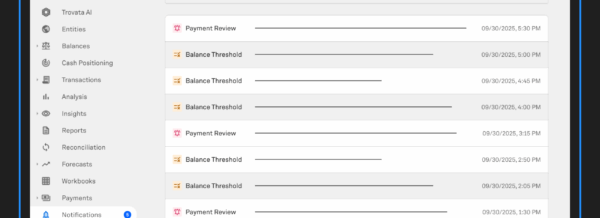The global landscape in 2024 is highly charged, with elections taking place in over 60 countries—making this a pivotal year for political transitions worldwide. As billions of voters head to the polls, the potential for shifts in policy, governance, and economic direction grows, with the ramifications extending far beyond national borders. These elections are occurring amid a backdrop of geopolitical instability, economic slowdowns, and inflationary pressures, all of which add further volatility to financial markets. The outcomes of these elections could dramatically influence global trade policies, foreign exchange rates, investor confidence, and corporate taxation. These variables heighten corporate treasury election uncertainty, significantly increasing the importance of effectively optimizing cash management.
In the United States, where voters face a tight presidential race, the stakes could not be higher. As history has shown, election cycles in the U.S. often result in market volatility—where policy uncertainties, regulatory shifts, and sudden shifts in consumer and investor sentiment can significantly impact corporate financial strategies. Treasurers, who are responsible for safeguarding their organizations’ financial stability, are uniquely positioned to navigate the risks and opportunities that arise from this uncertainty.
Given these conditions, cash management becomes critical—especially in volatile periods where liquidity, currency fluctuations, and forecasting become more challenging to manage. While the U.S. election dominates headlines, it’s equally important for treasurers to consider the ripple effects of elections across other major economies.
In these moments of heightened corporate treasury election uncertainty, treasurers must act proactively, developing robust strategies for cash and liquidity management that will allow their organizations to remain agile regardless of how the political landscape shifts.

Navigating Corporate Treasury Election Uncertainty in the U.S.
In the United States, the upcoming election could prove to be a pivotal moment. With a tight race between the Republican and Democratic nominees, the result could lead to shifts in fiscal policy, corporate tax regulations, and investor sentiment. Treasurers must consider these possible changes when developing strategies to maintain financial resilience.
Historical election data shows that markets do not respond well to uncertainty. The 2016 U.S. election, for example, caused sharp market swings, including a dramatic drop in the S&P 500 futures market overnight. And we only need to look at the aftermath of the 2016 Brexit referendum to see how drastically currencies can react to political events. As the pound dropped 8% against the U.S. dollar, businesses with international exposure were forced to reassess their cash positions and adjust for currency fluctuations.
Treasurers need to keep a close eye on potential impacts of the U.S. election:
- Market volatility: Political uncertainty often leads to market swings, making it difficult to predict investment returns or funding costs.
- Currency fluctuations: In globally connected organizations, foreign exchange risk must be managed proactively during election periods.
- Regulatory changes: New political leadership can lead to shifts in corporate taxes, financial regulations, and tariffs, all of which affect cash flow.
The stakes in the U.S. election have only heightened with geopolitical tensions, inflation concerns, and a global economic slowdown.
Global Elections and Their Impact on Financial Markets
As we approach the end of 2024, several elections have already taken place, resulting in notable shifts in governance and economic policies, which are impacting global markets and financial strategies for organizations worldwide.
In the United Kingdom, the Labour Party achieved a landslide victory, ending 14 years of Conservative rule. France, after its summer 2024 elections, finds itself in a state of political fragmentation. The election resulted in a divided parliament, making it difficult for the government to pass cohesive legislation. This has led to uncertainty over economic reforms, which could affect sectors like energy, transportation, and manufacturing. For companies with interests in France, treasurers will need to monitor potential disruptions to fiscal policy and prepare for prolonged market instability.
In Senegal, a victory for an anti-establishment, anti-corruption candidate was seen as a major win for democracy. The newly elected leader has promised to overhaul the country’s economic policies, with a focus on transparency and anti-corruption measures. This could have a ripple effect on foreign investment and economic relations, especially in industries like energy and mining, where treasurers should anticipate changes in foreign direct investment (FDI) flows and currency dynamics.
In Pakistan, a military-backed coalition has taken control, which introduces concerns over potential volatility in the region. While the coalition has promised to stabilize the economy, the complex political landscape could impact foreign exchange rates, trade agreements, and financial markets, with implications for companies operating in the region.
These recent political changes underscore the need for treasurers to remain agile and responsive. From shifts in fiscal policies to potential regulatory reforms, political developments in 2024 are creating both risks and opportunities that require close monitoring and strategic adjustments.
4 Steps Treasurers Should Take to Navigate Election Uncertainty
Amidst this uncertainty, treasurers are not just managing day-to-day cash operations; they are also key strategists who can help their organizations maintain liquidity, optimize cash positions, and mitigate risks during these turbulent times.
By leveraging robust cash forecasting, scenario planning, and risk management frameworks, treasurers enable companies to stay agile. Proactively managing working capital and ensuring sufficient liquidity buffers are vital for protecting against potential disruptions.
Moreover, treasurers are instrumental in aligning finance strategies with broader corporate goals during election seasons. They can help the C-suite anticipate potential regulatory changes and adjust financial operations accordingly, ensuring that the organization remains resilient in the face of economic and political uncertainty.
With a proactive approach to election uncertainty, treasurers ensure financial stability, empowering their organizations to remain resilient amidst change.
1. Cash Position Optimization
In periods of uncertainty, maintaining a clear and accurate understanding of your organization’s cash position is essential. Election periods often lead to delayed investments and changes in consumer behavior, both of which can affect liquidity. Treasurers should use real-time data to track cash inflows and outflows across multiple bank accounts and entities.

A strong focus on liquidity is vital to ensure that the company remains agile during market volatility.
2. Cash Forecasting and Scenario Planning
Treasurers must also prioritize cash forecasting and scenario planning to prepare for multiple election outcomes. Changes in regulation, trade policies, or tax codes can significantly impact working capital and liquidity. Scenario planning can help treasurers model various financial outcomes based on different election results, from tax policy shifts to changes in interest rates.

Cash forecasting tools, such as those provided by Trovata, can offer treasurers a forward-looking view of liquidity, enabling them to adjust cash positions proactively. In times of uncertainty, accurate forecasting becomes even more important to make informed decisions.
3. Managing Currency Risk
Global organizations must be prepared for currency fluctuations during election cycles, especially if they operate in regions with politically driven currency volatility. Treasurers should actively manage foreign exchange risk by locking in favorable rates or using hedging strategies to protect against adverse currency movements.
4. Real-Time Centralized Cash Management
Centralizing cash management functions across multiple bank accounts and entities is another strategy that can improve cash visibility and control.

Election cycles can strain the liquidity of subsidiaries in different regions, making it crucial to have a centralized view of cash reserves and available liquidity.
How Trovata Can Help Treasurers Manage Election Uncertainty
Trovata offers a comprehensive suite of tools designed to help treasurers navigate periods of uncertainty with confidence. From real-time cash visibility to robust cash forecasting capabilities, Trovata’s platform empowers treasurers to manage liquidity and optimize cash positions across global bank accounts.
Multibank visibility: Trovata leads in bank connectivity, aggregating and normalizing global cash data across formats. Trovata leads the industry with over 50 direct corporate bank connections and over 13,000 bank integrations worldwide.
Scenario planning: Trovata gives you the flexibility to model and create cash forecasts around different business decisions and potential investments. This way you can make fully informed decisions and assess how various election outcomes might impact liquidity.
APIs for automation: Trovata’s API-first approach aggregates and normalizes bank data with built-in quality assurance, auto-reconciliation, and self-healing across APIs, H2H/SFTP, SWIFT, or manual uploads, supported by white glove service.
Cash forecasting: Cash forecasting used to be a mess of spreadsheets and scattered data, but Trovata makes it simple. Trovata collects and normalizes data, then generates a forecast, all in one platform.

In a year of significant political and economic change, treasurers need the right tools to guide their organizations through uncertainty. With Trovata’s platform, treasurers can proactively manage cash and liquidity, ensuring that their organizations are well-positioned to weather the storm of election uncertainty and emerge stronger on the other side. To learn more, schedule a demo today!




